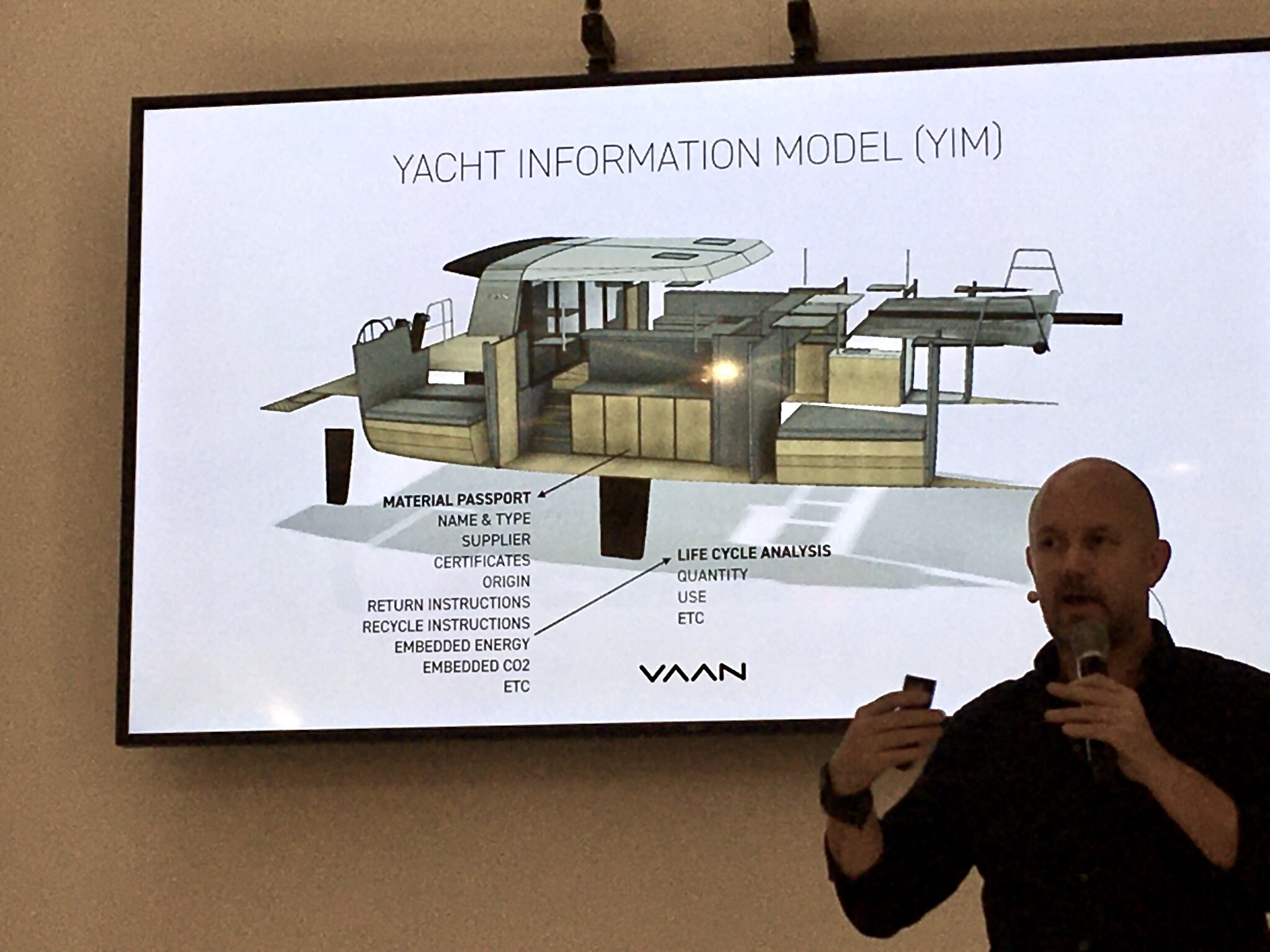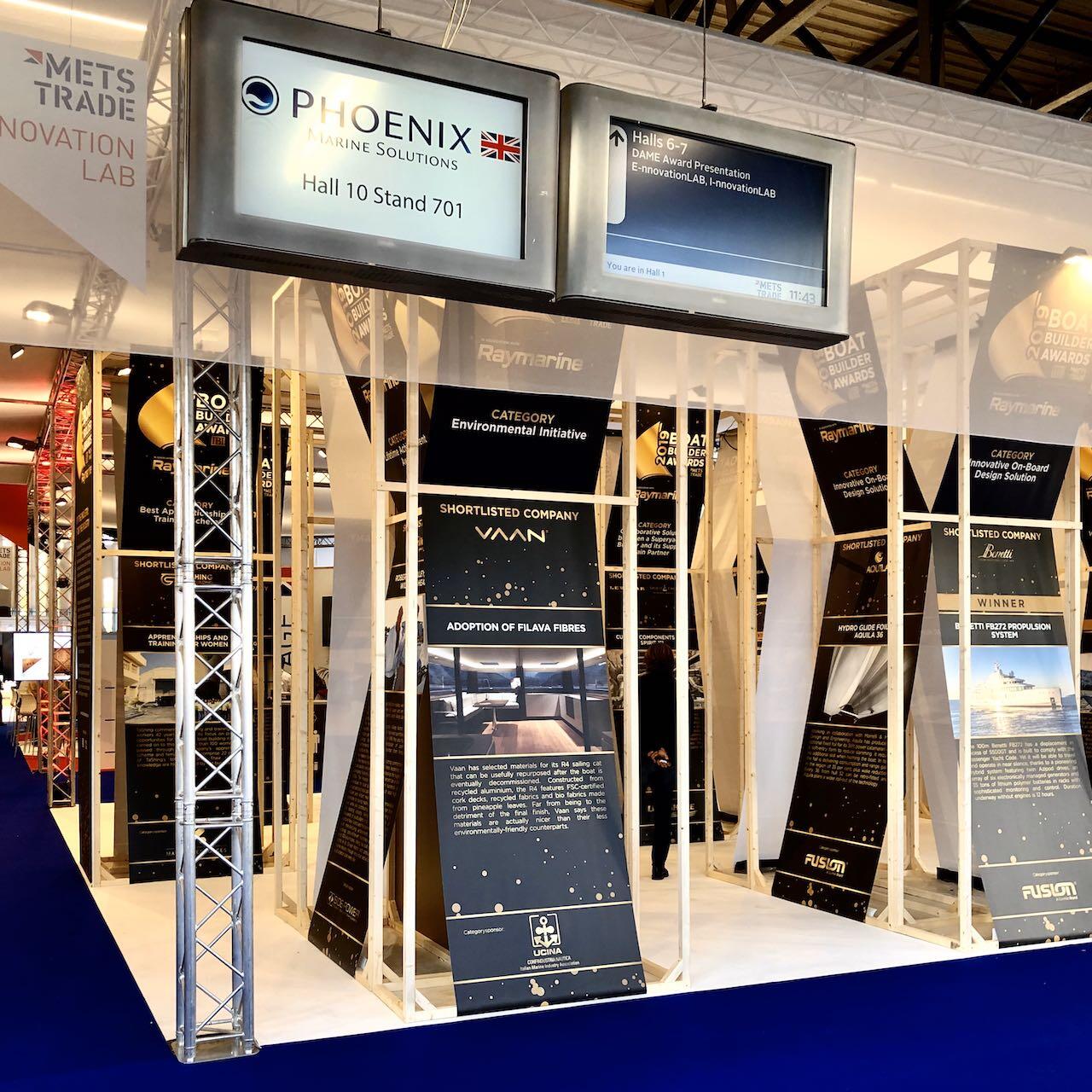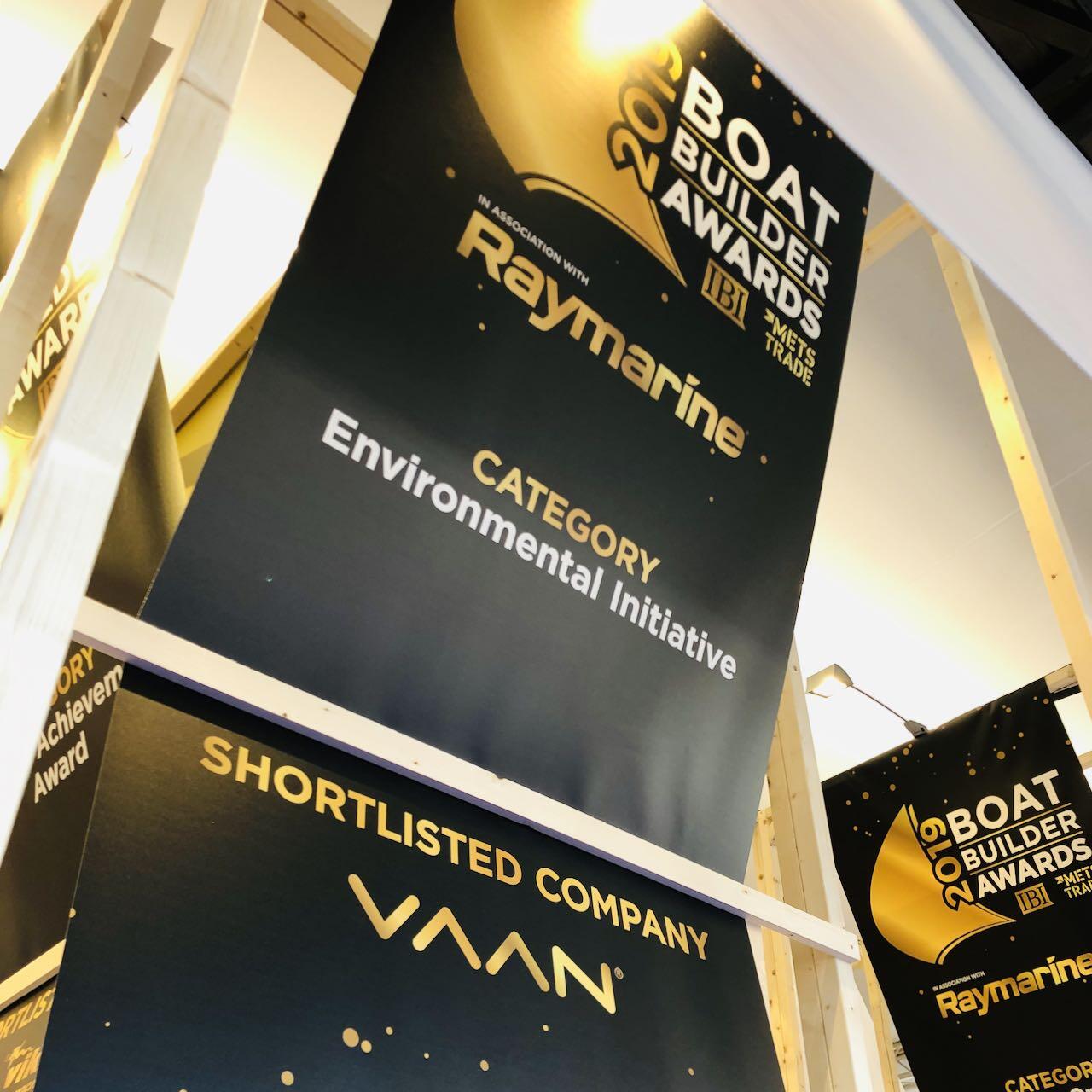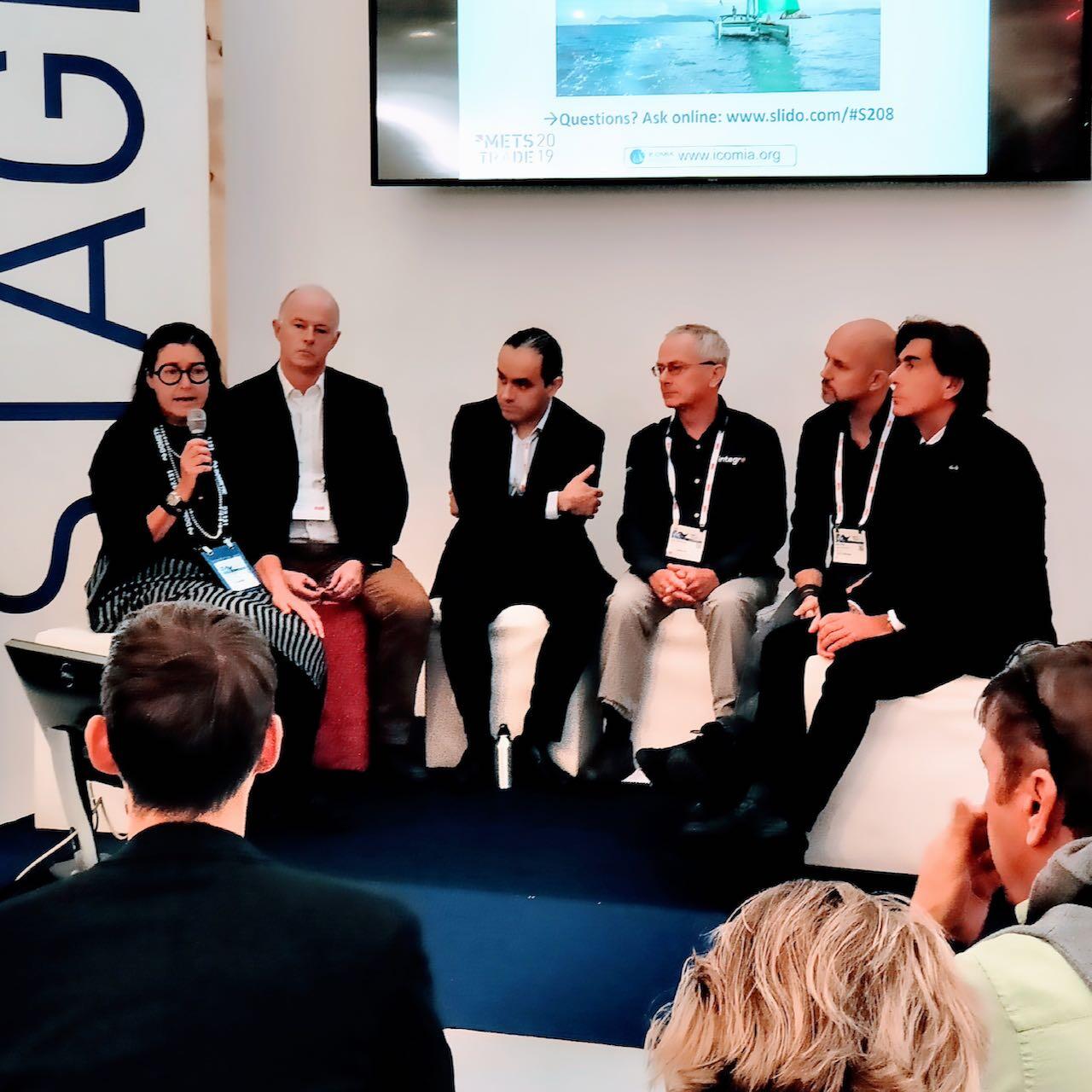Sustainability Presentation at METSTRADE 2019
While the METS 2019 is coming to an end, I would like to share with you our presentation and the insights we gained during our contributions.

Vaan was involved in three ways at this year’s METSTRADE in Amsterdam:
1. We were nominated for the Boat Builder Awards, in the Environmental Initiative category.
2. We participated in the panel discussion on sustainable yacht building in the I-nnovation Lab
3. We gave a keynote talk on sustainable yacht building.


The Boat Builder Awards Nominees Galery.
For us at Vaan Yachts, sustainability is not a thing that we occasionally address or wonder about. It is at the core of our company and locked in our mission statement: to build exciting sailing yachts that do not harm the planet. Both my co-founder Nienke and I strongly believe that one person’s pleasure should not come at the cost of others. We care about saving the planet as much as we care about sailing it. And so we like to give presentations about the subject.
Having a background in green entrepreneurship for the last 15 years, I have gained a bit of perspective on how industries respond to the changes that sustainability demands. Having been part of the transition in the energy market, the financial market, but also from a bit farther away, the mobility transition, food etc. I can safely say that the marine industry is not at the forefront.
The good news is that it’s certainly being talked about at METS. The Boat Builder Awards has a category dealing with the Environment, there was a Materia pop-up store with many examples of circular materials, there was the panel discussion, and we and other green companies were given the stage. So: thank you METS.

The panel discussion on sustainable yachtbuilding at METSTRADE 2019.
At the same time, I recognise the phases that are still to come for this industry: first they ignore the new players and approaches by not talking about it. Then they will laugh at it by playing it down and claiming it is not viable or ready for serious applications. Next is the fight-phase, where some political tactics like regulatory lobbying and PR will be employed to obstruct and discredit the new sustainable ways of working. And then they collapse. Just like Kodak did, like Blockbuster did and like Shell probably will.
CIRCULAR ECONOMY
During my keynote at METS yesterday I talked about the Circular lifecycle of a product and the differences with the traditional linear lifecycle of products. (You can download the slides here.) I also talked about the R9 framework which outlines the 10 steps (yes 10 steps in the R9 framework;) that any business and product developer can look at to reduce the impact of their business or product.
What is good about this framework is that it makes the concept of sustainability and low impact more concrete. It’s one thing to know that ‘you’ve got to do something about is’ and then another thing to know exactly what. The steps of the framework are in my presentation, but there is a lot more info on it online. See google. Another great resource for circular economy thinking is The Ellen MacArthur Foundation. For those who don’t know, Ellen is a world class sailor who has been both the youngest and fastest to do a solo circumnavigation. She then founded this Circular Economy foundation to work with businesses to accelerate the transition to the circular economy. www.ellenmacarthurfoundation.org
SUSTAINABLE DEVELOPMENT GOALS
Another great model are the UN SDG’s, the United Nations Sustainable Development goals. These are 17 main topics where impact on the planet and society can be reduces. They range from renewable energy to material usage, to equal opportunity etc. Organisations are adopting the SDG’s as a framework to understand where their impact is landing, and then to focus where their impact reduction efforts should be focussed. Another great way to make a vague concept more concrete so we can start aiming and take action.
When I asked the crowd, who had heard of the SDG’s, one person raised her hand. And this was a crowd of people that actually came to listen to a story about sustainability, so in a way you expect to be preaching to the choir. I invite everyone to learn about the SDG’s, pick your battles and start improving on those.
THE YIM, MP AND LCA
Another topic I discussed was the Yacht Information Model, the YIM. This is a concept we really have stolen from another sector: construction. In the construction and subsequent management of buildings the Building Information Model (BIM) is used to design, track and trace all the components inside a building. The database contains information about components, materials, weighs etc, but also ever more meta-data.
Ultimately the database contains Material Passports (MP) for all materials used, also in sub-components as well as recycling instructions, embodied energy, embodied CO2 etc. This then allows for the creation of a so called LCA, for Life Cycle Analysis. This is the ultimate measure of a products impact on the planet over the entire course of its production, use, and demolishing. It will become the main, objective, verifiable truth about how ‘green’ something is.
And the YIM is where this information resides. The 3D model we all have as boat builders are to be expanded with all this meta data so that even in the design stage, the LCA can be monitored live while design decisions are made. Currently the parameters we look at as yacht designers when we choose a material or product are weight, volume and key performances. We are adding to that the LCA impact. Selecting another material should immediately show the difference in the LCA.
THE ROLE OF PEOPLE, GOVERNMENTS, COMPANIES AND STANDARDS
During my keynote I was also asked about how the transition could go faster, and what the person asking the question could do himself, and what governments should be doing. My answer was this: we all should be doing as much as we can. This is not up to the government, this is not up to companies, it’s not up to individuals. This is up to all of us.
No government will act and drive through radical needed changes unless enough people demand it. No company will all by itself make changes that may destroy their competitive advantage. And now company will develop a product that falls outside of current certification. The only way a transition can happen is when all the parties in the chain are moving along. And the way to speed up the proces, is for all of us to keep pushing. Spreading the word. Showing examples, or being an example. Let’s all just keep pushing. Let’s Sail The Planet together!
#SAILTHEPLANET
Download the Vaan METS2019 presentation slides here >>